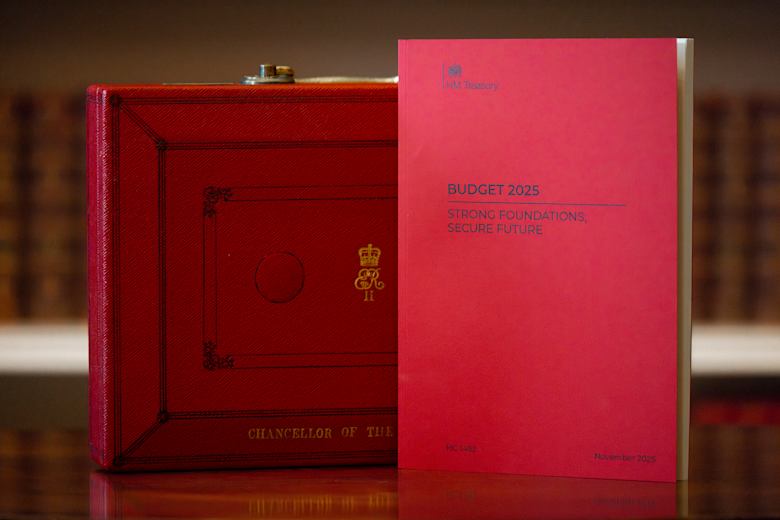UK Budget 2025
Posted on 27 November 2025The UK Budget 2025 was announced yesterday by the Chancellor of the Exchequer. But what could it mean for Ashford businesses? Here’s a snapshot of some of the key measures.
From changes to business rates to frozen tax thresholds, everyone will be impacted by the Chancellor’s announcements yesterday, 26 November 2025. Key measures impacting small and medium businesses include increases to the minimum wage and changes to tax support for entrepreneurs. Extra charges for electric vehicles and changes to business rates will have an effect for businesses located in the Ashford Borough.
The Office for Budget Responsibility forecasts show UK growth averaging 1.5% a year. Inflation is set to ease from 3.5% in 2025 to 2% by 2027. And national unemployment is staying near 5% until 2027 with real household incomes remaining at around 0.25% annual growth.
Explore the full budget on the UK government website.
Business rates
From 1 April 2026, business rates bills in England will be updated to reflect changes in property values since the last revaluation in 2023. Changes will include:
- Small business multiplier decreasing from 49.9p in 2025-26 to 43.2p in 2026-27
- Standard multiplier decreasing from 55.5p to 48p
- New high-value business rates multiplier at 50.8p in 2026-27. For properties with rateable values of £500,000 and 2.8p above the national standard multiplier
- New Retail, Hospitality and Leisure (RHL) rates categories from April 2026, with small business RHL multiplier to be 38.2p and the standard RHL multiplier to be 43p.
A package worth £4.3 billion over the next three years will support businesses as they transition to their new bills.
Full details are on the government’s Budget 2025 tax support for businesses factsheet.
Enterprise
- Pension contributions – From April 2029, the government will charge employee and employer National Insurance on any pension contributions made via salary sacrifice above £2,000 a year.
- Capital gains tax relief halved for bosses selling their businesses to Employee Ownership Trusts from 100% to 50%.
- Charity Tax Relief – a new VAT relief introduced from 1 April 2026. Covers business donations of goods to charity.
- UK Listing Relief – From 27 November, transfers of a company’s securities will not pay 0.5% Stamp Duty Reserve Tax charge for three years from when the company lists on a UK regulated market.
- Call for Evidence into the tax support for entrepreneurs – Government seeks views on the effectiveness of the existing tax system for business founders and scaling firms. The aim is to discover how the UK can better support these companies to start, scale and stay in the country. Closing on 28 February 2026 you can find out more and respond here.

Regulation and licensing
- New Fair Work Agency to take action against illegal working, breaches of employment rights and tax issues.
- Mandating e-invoicing – from April 2029, all VAT invoices to be issued in a specified electronic format, for business-to-business and business-to-government transactions.
- Overnight visitor levy will allow regional mayors or some Foundation Strategic Authorities (not currently Kent), to raise revenue locally to support investment.
Skills and workforce
- National Living Wage and National Minimum Wage increases from April 2026
National Living Wage will increase by 4.1% to £12.71 per hour
National Minimum Wage for 18-20 year olds will increase by 8.5% to £10.85 per hour
National Minimum Wage for 16-17 year olds and apprentices will rise by 6.0% to £8 per hour
Accommodation offset will increase by 4.1% to £11.10 per day
- Youth Guarantee – Growth and Skills Levy
£1.5 billion over the next four years for additional employment and skills support for young people.
Focus on ensuring young people have access to high-quality training opportunities.
Include measures to simplify the apprenticeship system
- Youth Guarantee – Jobs Guarantee scheme
Government to fund six-month paid work placement for every 18 to 21 year old on Universal Credit and looking for work for 18 months
100% of employment costs for 25 hours a week at the relevant minimum wage funded, plus wraparound support
- Employer National Insurance contributions (NICs) relief for veterans – extension of employer NICs relief for employers hiring veterans in their first civilian role to April 2028.
UK budget 2025 – other measures
- Income Tax thresholds will stay frozen until 2031. That is three years longer than previously planned.
- Commercial vehicles such as vans, buses, motorcycles, coaches and HGVs are exempt from the new mileage charge for electric and plug-in hybrid cars from April 2028. Electric car drivers will pay 3p per mile, while plug-in hybrid drivers will pay 1.5p per mile. Rates will go up each year in line with inflation.
- 5p temporary cut in fuel duty on petrol and diesel will be extended from April 2026. There will be staged increases from September 2026.
- British Business Bank’s new five year strategy to include increasing capital deployment from £1.5 billion to £2.5 billion a year
- Expansion of InnovateUK’s BRIDGE AI programme helping businesses in high growth potential sectors to harness the power of AI and unlock their full potential.
- ISA reform – From 6 April 2027 the annual ISA cash limit will be set at £12,000. A further £8,000 can be invested in stocks.
